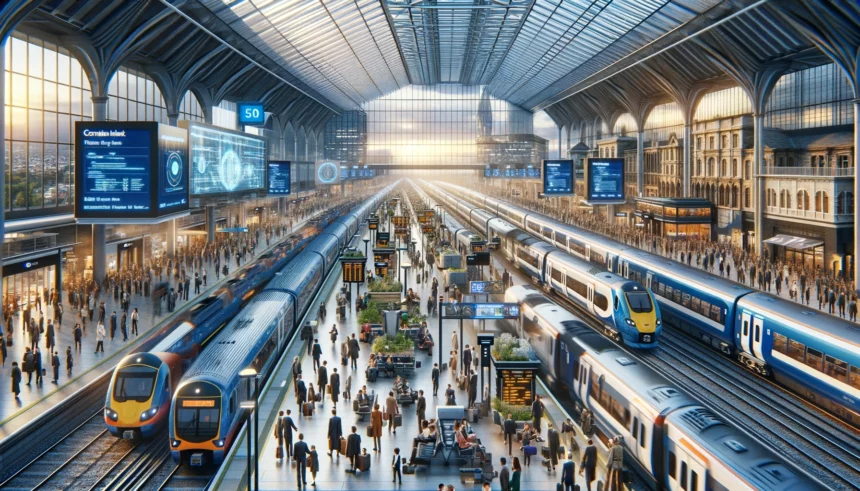The future direction of the UK rail industry is a hot topic filled with speculation and discussions. A recent online conference by the Westminster Energy, Environment and Transport Forum shed some light on the path forward but left many questions unanswered. Financial challenges seemed to be a major concern among the attendees.
Rail Reform Challenges
At the heart of the discussions was the Rail Reform Bill, viewed by many as overly ambitious and fraught with financial risks. Jonny Mood from the National Audit Office raised doubts about the Department for Transport’s (DfT) grasp of the rail sector’s complexities. The establishment of Great British Railways (GBR) has seen little progress despite being in the works for over three years. Plans are burdened by upfront costs, while the Treasury demands significant savings.
Financial and Operational Uncertainties
The DfT and Treasury seem to be at odds, leading to increased financial uncertainties and delayed reforms. These delays are likely to extend past the upcoming general election, postponing potential savings and new passenger contracts. The ongoing COVID-19 pandemic has also misaligned expectations for passenger growth, adding to the uncertainty.
Optimising Rail Services
Despite these challenges, there have been some improvements in rail services, including timetable optimisation and ticketing overhauls. However, getting rail companies on board with these changes remains a struggle.
Legal and National Perspectives on Rail Reform
Tammy Samuel from Stephenson Harwood provided a legal viewpoint, discussing the uncertain future structure and timing of rail reform. The nationalisation of rail services as contracts expire has been highlighted in the news, with several services already under government operation due to financial or performance issues.
Trade Union Insights
Trade unions have often been portrayed negatively in the media, yet they play a crucial role in the industry. Mick Whelan of ASLEF emphasized the importance of partnership within the rail industry. He also highlighted the need for comprehensive reforms and more rational planning in rail operations.
The Path Forward
Chris Page from Rail Future expressed hopes for a more expansive and efficient railway system. He emphasized the need for a clear strategy on the railway’s role, focusing on sustainability, reliability, and environmental impacts. A consistent strategy for fares, ticketing, and investment is crucial for the future of UK railways.
Industry Perspectives
Representatives from the Railway Industry Association stressed the need for a long-term industrial strategy to provide stability and confidence for investments in rail infrastructure and services.
Conclusion
The UK Rail Strategy 2024 is at a crucial juncture. With significant financial and operational challenges ahead, the industry must navigate these uncertainties to build a resilient and efficient railway system that meets future demands. As the general election approaches, the direction of these reforms will be pivotal in shaping the future of UK rail.
















